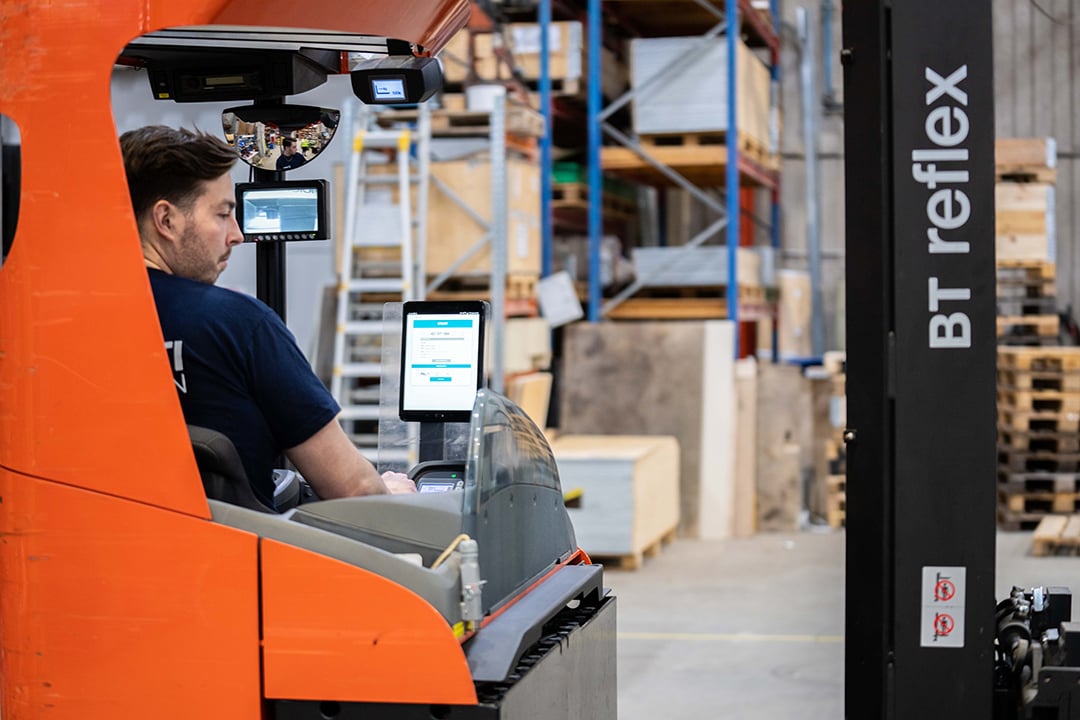In many industries, weighing and material flow transactions have traditionally been tracked using Excel sheets, as they haven’t produced real-time inventory events. This required manual input and lacked comprehensive tracking of all material flows, leaving room for human error. A modern weighing and material flow management service maintains up-to-date inventory automatically, and inventory events can be easily transferred to your ERP system. This enables accurate management of inventory balances and stock levels without separate calculations or reports, making processes more precise and efficient.
Why Excel-Based Inventory Management Falls Short
Traditional inventory tracking with spreadsheets or manual systems introduces several challenges:
- Lack of real-time updates: Inventory data is only as current as the last manual entry.
- Human error: Typos, miscalculations, and missing entries lead to discrepancies.
- Poor traceability: Material flows aren’t comprehensively tracked, reducing transparency.
- Inefficiency: Manual reconciliations eat up time and resources.
If any of these issues sound familiar, it may be time to assess your readiness for inventory automation.
Key Questions to Assess Your Inventory Management Readiness
Ask yourself the following:
- How is inventory currently tracked, and what challenges arise with Excel or paper-based systems?
- How often do you encounter discrepancies or errors — and what are the consequences?
- Are your current weighing systems capable of generating real-time inventory events?
- Is your ERP system integrated with your weighing processes to support automation?
- Do you have the visibility and accuracy required for compliance and performance?
- How much time is spent on manual reconciliation and reporting?
- What improvements (speed, accuracy, scalability) would transform your operations?

Benefits of Automating Inventory Management
Modern weighing and material flow management systems eliminate the drawbacks of manual tracking and unlock a range of operational benefits:
Real-Time Updates
Inventory levels are automatically updated with each weighing transaction — no lag, no waiting.
Enhanced Accuracy
Automation minimizes human error, ensuring data integrity and trustworthy inventory balances.
ERP Integration
Inventory events are seamlessly transferred to your ERP system, providing a unified view of operations.
Improved Decision-Making
Real-time insights support smarter planning, procurement, and production decisions.
Scalable Infrastructure
As your business grows, automated systems easily handle increasing volumes and complexity.
Cost Efficiency
Reducing manual effort, errors, and reconciliation tasks lowers operational costs and boosts productivity.

From Excel to Excellence: The Future of Inventory Control
Automating inventory through real-time weighing system integration isn't just a technological upgrade — it's a strategic move toward operational excellence. Whether you're in waste management, recycling, logistics, or manufacturing, modernizing your inventory tracking systems can reduce cost, enhance control, and scale with your business.
Conclusion
Managing inventory with Excel sheets has long been the norm in many industries, especially those reliant on weighing and material flow transactions. But as digital transformation accelerates, relying on outdated manual methods is no longer sustainable. It's time to take control of inventory with a modern, automated solution that ensures accuracy, efficiency, and real-time visibility.
Learn more: The Future Of Weight-Based Material Flows And Its Impact On Supply Chain Management
Optimize Material Flow with a Unified Weighing System Today!
If you're ready to eliminate inefficiencies, enhance accuracy, and streamline your weighing operations, it's time to connect all scales to a centralized system.
Book a consultation with an expert: